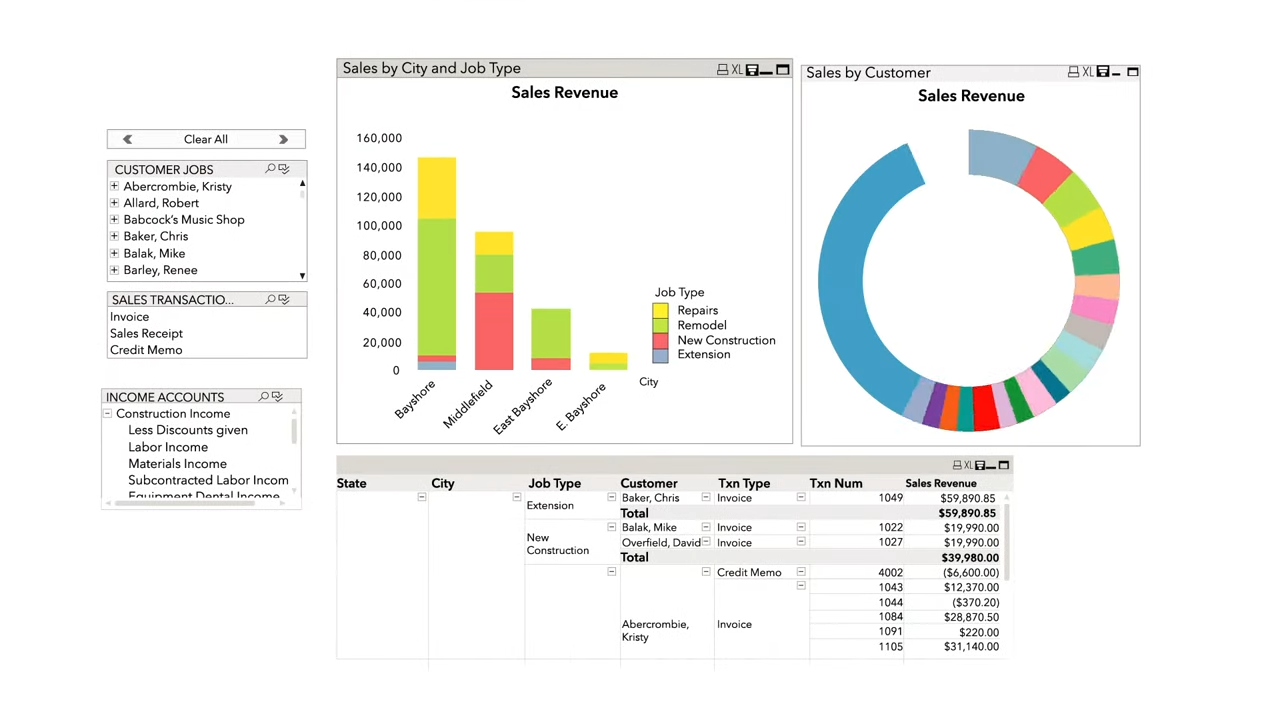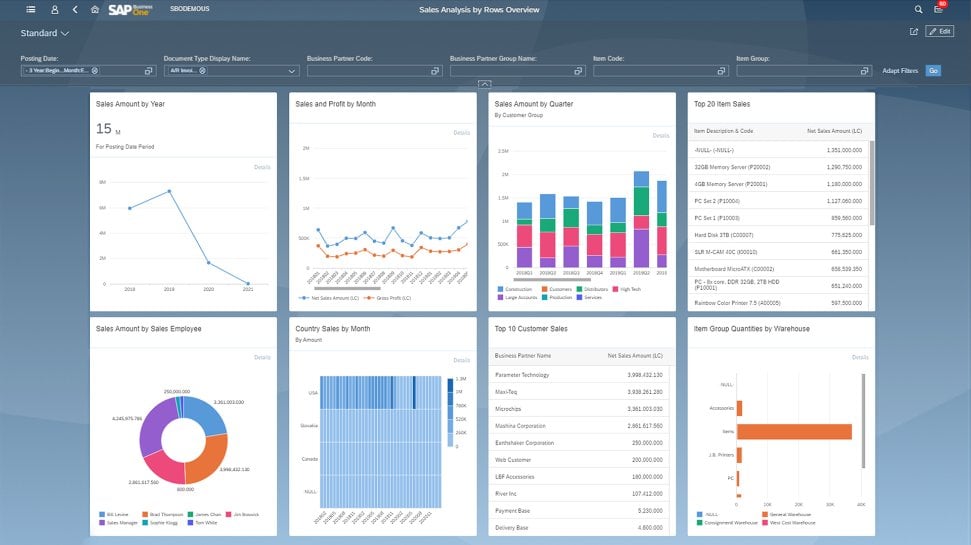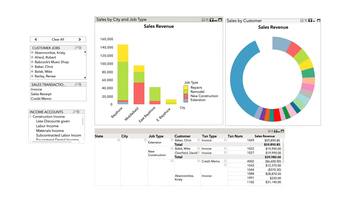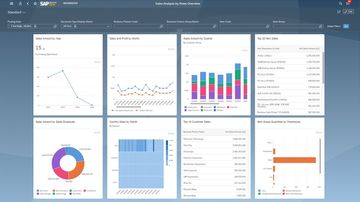QuickBooks Enterprise vs. SAP Business One


QuickBooks Desktop Enterprise is a Windows-based accounting system for small to medium businesses. It’s perhaps Intuit’s most advanced platform under the QuickBooks brand, offering the ability to manage finances, inventory, payroll, and more.
The software’s strong inventory management tools, including advanced tracking and automation, particularly benefit businesses managing complex inventory across multiple locations.
QuickBooks Desktop Enterprise offers cloud access as an annual subscription, in addition to its on-premises offering. It also has industry-focused editions with tools and reporting tailored to specific business needs, enhancing customization.
SAP Business One provides comprehensive business management capabilities for small and medium-sized companies. This system provides integrated departmental support for finance, sales, supply chain management, production, project management, and production processes.
This software can be deployed on-premise or on the cloud, and accessed from any mobile device through iOS and Android apps. The SAP API Business Hub allows for a wide range of partner integrations.
-
Price Range
$ $ $ $ $$ $ $ $ $
- Starting Price $199/month
- Client OS Windows
-
Price Range
$ $ $ $ $$ $ $ $ $
- Starting Price $410/user/year
- Client OS Windows
When considering software for your business, two of the top contenders are QuickBooks Desktop Enterprise and SAP Business One. Our editorial review staff has personally tested and reviewed both of these products to help you understand how they compare.
QuickBooks Desktop Enterprise Overview
QuickBooks Desktop Enterprise is highly recommended for small to medium-sized businesses, particularly those in the accounting, construction, and information technology sectors. It’s tailored to fit organizations with 10-50 employees and revenue from $1M to $10M.
While QuickBooks Enterprise is more expensive than other QuickBooks versions, it functions as an affordable, light ERP system. It’s available via a cloud-hosted or on-premises deployment model. However, it’s important to note that it’s a Windows-only platform.
SAP Business One Overview
On the other hand, SAP Business One is primarily meant for small to midsize enterprises seeking a comprehensive ERP solution. It’s ideal for businesses aiming to centralize data management and streamline core operations. The software offers improved decision-making capabilities through extensive BI and efficient customer data retrieval.
SAP Business One also offers both cloud-hosted and on-premises deployment. It also offers native iOS and Android apps for increased accessibility. However, it requires a phone consultation for pricing details, which might be a bit of a hurdle for some businesses.
QuickBooks vs SAP: Which is Bettr for Most Businesses?
After careful consideration, our team found QuickBooks Desktop Enterprise is better for most businesses, especially those looking for a cost-effective solution with advanced inventory features. It’s ideal for small to medium-sized businesses that require a Windows-based platform. On the downside, it requires annual contracts.
However, businesses seeking a comprehensive ERP solution with a focus on data centralization and improved decision-making capabilities should consider the highly customizable SAP Business One. However, it lacks a payroll module and has a limited chart of accounts.
For more options, check out our roundup of the best ERP software.



